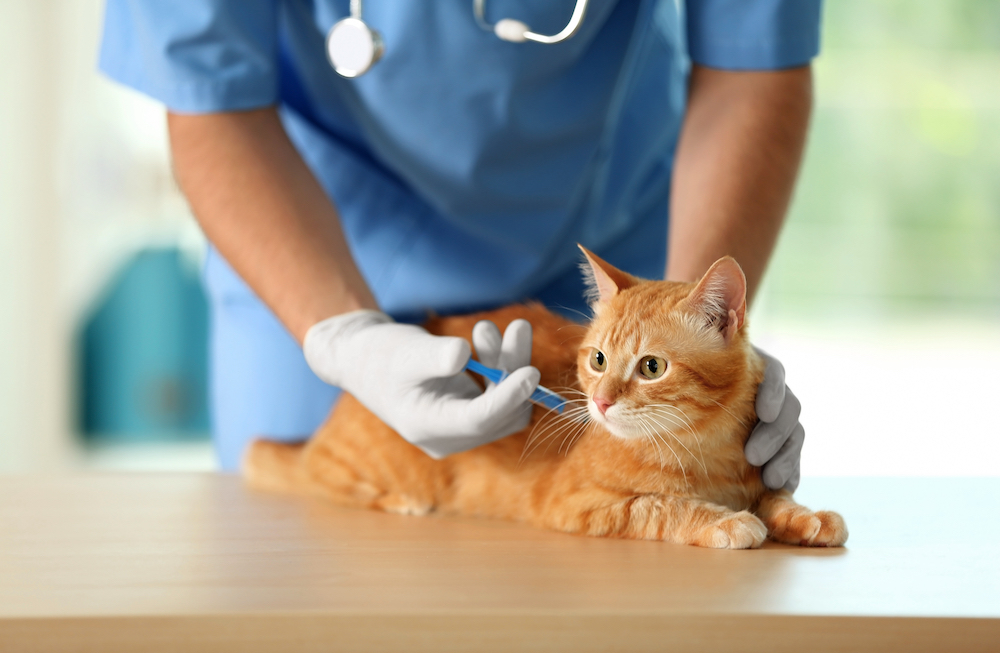
Vaccinations are a fundamental aspect of pet healthcare, and most dogs and cats get their shots when they are very young. That said, there is more to canine and feline vaccines than meets the eye. Vaccines help prevent life-threatening conditions or illnesses in both animals and humans. Veterinarians strongly recommend that all domestic dogs and cats receive vaccinations.
What are Pet Vaccines?
Vaccines are substances containing genetically manipulated or weakened disease cells to make them harmless. Manufacturers make vaccines in several ways, but they all serve the same purpose. They are similar enough to specific diseases and make the body react to them as though exposed to the disease. Consequently, the body produces antibodies and cells to attack and kill the infection.
The first time a disease attacks the body, it takes a long time for the cells to respond. During the process, the body makes memory cells. These memory cells remind the body how to make the antibodies that destroyed the disease the last time.
The next time the same disease attacks the body, the reaction will be faster and more thorough. So, fewer, if any, symptoms should show. Memory cells do not last forever as the body gradually loses them, meaning it forgets how to make those disease-fighting cells. That is why booster shots are so important.
Dog and Cat Vaccines
Do you have a new canine or feline companion? If so, you probably wonder whether dogs and cats need different vaccines. Dogs and cats are susceptible to different diseases the same way dogs and humans are at risk of different conditions. So, if you have a dog and a cat, you must vaccinate them against various diseases.
Veterinary professionals also separate pet vaccines into two categories. These are:
Core Vaccines
Core pet vaccines are crucial for all cats and dogs, regardless of their health history. Consult your veterinarian to determine which core vaccine your dog or cat needs. Some states have laws regarding the type of core vaccines pets must get.
Non-core Vaccines
These vaccines are optional. However, your veterinarian may recommend non-core vaccines depending on your cat or dog’s health history, lifestyle, and other risk factors for preventable diseases.
Core Vaccines for Dogs
The four core vaccines for dogs are:
Rabies
Parvovirus
Canine adenovirus
Canine distemper virus
Almost all states require rabies vaccines for dogs. However, they do not require veterinarians to administer these vaccines similarly. Also, requirements surrounding the frequency of rabies shots vary by state.
Non-core Vaccines for Dogs
Your veterinarian may recommend one or more non-core vaccines. These include giardia, kennel cough, Lyme disease, distemper/measles combination, and canine parainfluenza virus.
Core Vaccines for Cats
Cats likewise have four core vaccines. These are:
Rabies vaccine for cats - States have rabies requirements for cats and even ferrets
Feline herpesvirus 1
Feline panleukopenia virus
Feline calicivirus
Non-core Vaccines for Cats
Cats are subject to several non-core shots given based on various lifestyle factors. For example, cats that spend more time outdoors are more likely to need non-core vaccines than indoor cats. These include Chlamydophila felis, feline leukemia virus, Bordetella bronchiseptica, and feline immunodeficiency virus.
Pet vaccines are essential in preventing deadly diseases. As a pet owner, you are responsible for ensuring your pet gets the right shots at proper time intervals. After all, your pet is a member of your family and deserves the best care possible.
For more on pet vaccinations, visit Community Pet Outreach at our Lewisville, Texas office. Call (972) 848-8930 to schedule an appointment today.





